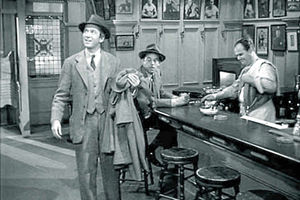Shrewsbury Matters: Shelton Hospital shows how attitudes have changed
Shrewsbury's rather grand, certainly imposing, and perhaps even just a little bit frightening Shelton Hospital is facing an uncertain future writes Phil Gillam.

It will eventually be reborn as something, but no-one is quite sure what.
Shropshire's one-time lunatic asylum is now likely to lie redundant over the next three years because, say health bosses, any future use of the building has been 'hampered' by the poor economic climate.
The old place, founded in 1843, was closed in September as the town's new £46 million Redwoods Centre opened, the latter being a 112-bed facility which looks every inch the ultra-modern 'mental health village', a 21st century replacement for the Victorian hospital.
Now then. What do you think of when you picture a Victorian mental hospital?
Undoubtedly, some 'treatments' carried out there 100 years ago would now be seen as appalling and primitive, but knowledge and understanding of mental health was not, of course, what it is today. And the public's attitudes also took time to change.
To our everlasting shame, Shelton Hospital (along with just about every other mental health hospital around the world) was the butt of jokes for generations.
I well remember the kids at our school laughing about 'the loony-bin' and pointing at anyone who was a little bit different, mocking them and saying they had escaped from Shelton.
Almost unbelievably, this brand of humour continued for some into adult life.
As an antidote to such cruelty, may I recommend the wonderful 1950 James Stewart film, Harvey, a movie which is kind, sympathetic, gentle and compassionate in its treatment of the central character, Elwood P Dowd.
Elwood, played with such grace, charm and warmth by Stewart, has an invisible friend who just happens to be a six-foot tall rabbit called Harvey.
Only Elwood (and a few privileged others on occasion) can see Harvey, a benign spirit.
Dowd's sister tries to commit Elwood to a mental institution (which, if memory serves, looks uncannily like Shelton Hospital) and a comedy of errors ensues. Harvey and Elwood become the catalyst for a family healing its wounds and for romance blossoming in the most unexpected places.
Yes, yes, yes. I know this is a sprightly comedy from 60 years ago and, you may say, has little or nothing to do with mental health care in 2012, but I still think it has plenty to teach us about how we human beings treat one another.
For a more informed view of things, I spoke to my brother Tony, himself a mental health nurse who is Clinical Manager of Worcestershire Early Intervention Service, and who worked at Shelton Hospital from 1983 to 1986.
"I have fond memories of Shelton Hospital which is a very beautiful building in very beautiful grounds." he said. "It had its own little farm and so, to some extent, the place was self-contained and self-sufficient.
"They had a cricket ground and the patients would have their own cricket team and the staff would have their own cricket team and they would have matches regularly.
"To be a nurse there at that time it was considered an advantage either to play cricket or to play a musical instrument because they also had a band and had regular dances there.
"It was very much a self-contained community.
"Of course in Victorian times these places were designed to be self-contained. It was an institution so people who were admitted there often ended up living there their whole lives.
And often the staff also would stay there for years and their children would eventually become staff there so you would have generations of people who had worked at the same place.
"By the time I was there in the 1980s there was beginning to be a shift towards more community care and less emphasis on people staying in the hospitals.
"It's been a very gradual process. But the move has been increasingly towards seeing mental illness as a treatable thing and that people can continue to live in the community and live normal lives.
"Today there is a minimum number of in-patient beds in our hospitals and attitudes have changed massively over the years. So in a way the history of Shelton Hospital is the history of attitudes towards mental illness."
Perhaps, since Victorian times, we have simply become a much more understanding society. Perhaps, in a nutshell, we have (generally speaking) become nicer people.
It's pleasant to think so, anyway.
And talking of 'pleasant', the last word should surely go to Elwood P. Dowd.
"Years ago my mother used to say to me, she'd say: 'In this world, Elwood, you must be' – she always called me Elwood – 'In this world, Elwood, you must be oh so smart or oh so pleasant.'
"Well, for years I was smart.
"I recommend pleasant . . .
"You may quote me."



